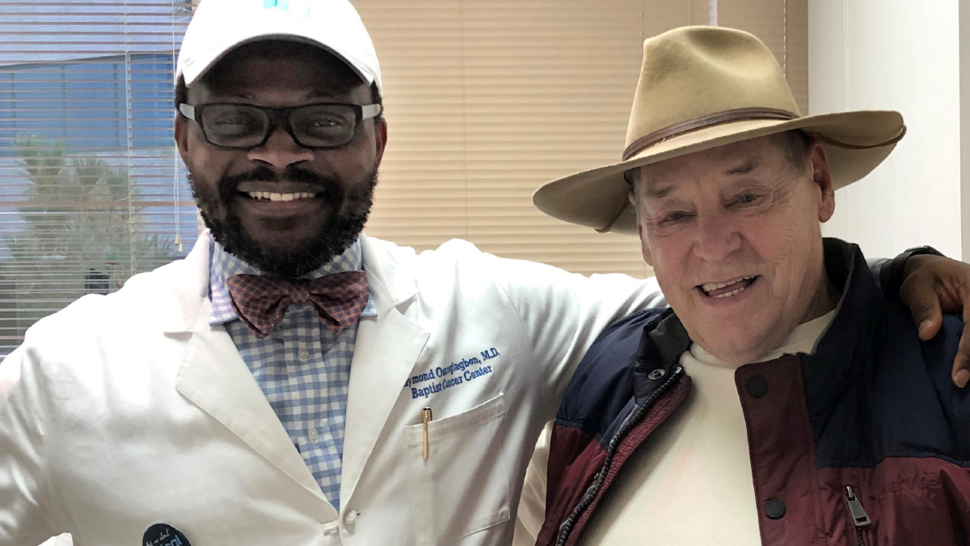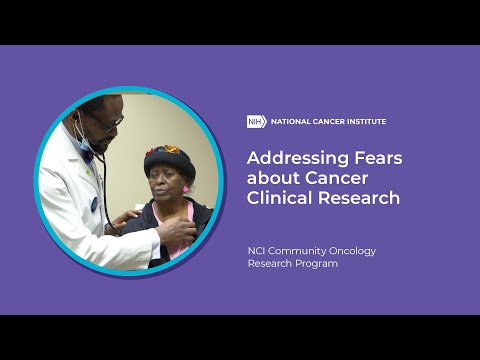“They think they’re going to be guinea pigs,” said Dr. Raymond Osarogiagbon, about how rural and minority community members may feel about being in clinical trials. He recalled conversations with one woman’s family about her potential trial participation.
“Thirty people came with her, some angry, some scared and wanting to know why I wanted to experiment on their mom,” he said. After he addressed their concerns, the woman did join a trial and is thriving now, more than 10 years later. She even has family members who’ve asked about other trials.
Although clinical trials can provide vital access to treatments, there are “historical moments people recall when the research community has not served people properly, and we continue to be burdened by that,” said Raymond.
In his role as director of the multidisciplinary thoracic oncology research program at Baptist Cancer Center in Memphis, TN, he focuses on connecting people diagnosed with lung cancer to a range of treatment options that are sometimes only available through trials.
...let’s stop acting surprised when disparities and mistrust emerge. What’s more important is what we’re going to do about it.
As an NCI Community Oncology Research Program (NCORP) site, Baptist brings cancer prevention, diagnostics, and care to the traditionally underserved. The center is based in Tennessee but serves much of the Southeast, meaning Raymond sees patients from states with the highest numbers of lung cancer cases and deaths and “some of the worst social determinants of health: high tobacco use, poverty, and poor health care infrastructure.”
These communities were left behind, he said, “so let’s stop acting surprised when disparities and mistrust emerge. What’s more important is what we’re going to do about it.”
Clinical trials help broaden access to cancer care, offering patients options like immunotherapy that did not exist 50 years ago. “That's exciting, but none of it has any value,” said Raymond, “if it doesn’t directly benefit all populations.”

